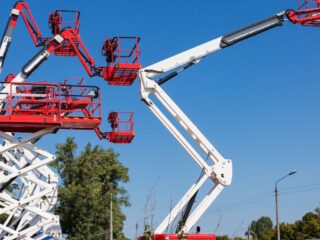

Understanding Your Needs
Before diving into the world of tractors, it’s crucial to assess your specific needs and requirements. Take the time to evaluate the size of your property, the type of tasks you will be performing, and the terrain you’ll be working on. This assessment will help you determine the horsepower, size, and features required in a tractor that will best serve your purposes.
Considering Tractor Hire for Initial Assessments
If you are unsure about the type of tractor that suits your needs, consider tractor hire services. Hiring a tractor for a short period allows you to get hands-on experience and assess whether it meets your requirements. This gives you the opportunity to test different models and make a more informed decision when it comes to purchasing your own tractor.
Determining the Horsepower
The horsepower of a tractor is a crucial factor to consider. It determines the tractor’s capability to perform tasks efficiently.

For small farms or properties with light to moderate tasks, a tractor with horsepower ranging from 20 to 50 horsepower is usually sufficient. However, if you have larger-scale operations or heavy-duty tasks, you may need a tractor with higher horsepower.
Matching Attachments and Implements
Tractors are versatile machines that can be fitted with various attachments and implements to perform specific tasks. When choosing a tractor, consider the attachments and implements you will need for your operations. These may include loaders, mowers, tillers, plows, seeders, and more. Ensure that the tractor you select has the necessary hydraulic capabilities and mounting points to accommodate the attachments you require.
Considering the Transmission Type
Tractors come with different transmission options: manual, automatic, and hydrostatic. Each type has its advantages and considerations. Manual transmissions provide more control but require frequent shifting. Automatic transmissions offer ease of use but may not provide as much control in certain situations. Hydrostatic transmissions provide smooth operation and variable speed control but may require more maintenance.

Consider your comfort level, the tasks you’ll be performing, and the terrain you’ll be working on when choosing the transmission type.
Evaluating the Condition and Reliability
Whether you are purchasing a new or used tractor, it’s important to evaluate its condition and reliability. If buying a used tractor, check its maintenance history, hours of operation, and overall condition. Consider reputable sellers and have a trusted mechanic inspect the tractor before finalizing the purchase. For new tractors, research the manufacturer’s reputation, read reviews, and consider the warranty and after-sales support offered.
Considering Fuel Efficiency and Maintenance Costs
Fuel efficiency and maintenance costs are long-term factors that should be considered. Look for tractors that are known for their fuel efficiency and have low maintenance requirements. This will help you save on operational costs and ensure that your tractor remains in good condition for years to come.
Choosing the right tractor for your small farm or property is a significant decision that requires careful consideration. By understanding your specific needs, assessing horsepower requirements, matching attachments, and considering transmission types, you can make an informed choice. Additionally, evaluating the condition and reliability of the tractor, as well as it’s fuel efficiency and maintenance costs, will contribute to a successful long-term investment. Don’t hesitate to seek advice from experts and consider tractor hire services to gain firsthand experience before making a final decision. With the right tractor, you can efficiently tackle tasks and enhance the productivity of your small farm or property.











